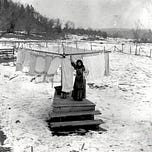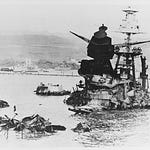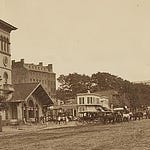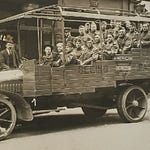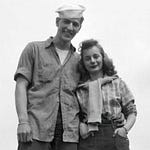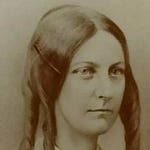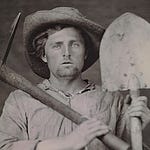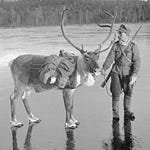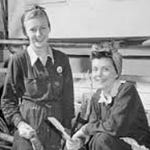Reading the paper on Oct. 19, 1944.

American, British, Canadian and French forces advanced east towards Germany yesterday, establishing positions which could serve as ‘springboards for a winter advance into Germany once the ground freezes,’ the Supreme Allied headquarters said.
American forces continue their work to clear remaining German forces from Aachen and Metz while British and American fighter bombers took advantage of a break in the weather to bomb German rail lines.
Near Metz, a seven-hundred-pound German artillery shell landed within eight feet of General Patton recently but failed to explode.

Prime Minister Winston Churchill is in Moscow for meetings with Soviet leader Joseph Stalin.
[Not known to the paper’s readers, the two leaders will reach an agreement soon on spheres of influence in postwar Eastern Europe. US representatives were purposely excluded from these discussions. It is claimed that Churchill later called this the ‘naughty agreement.’]

Yesterday, ten American soldiers rescued eighty-one children, ages two through six, from a chateau near Nancy, France, where they had been sent for safety.
The chateau had become ‘no man’s land,’ with American forces arrayed on one side and German forces on the other.
The rescue took place at night, across a stream and over a thousand yards of damp ground, and under German artillery fire.
None of the children cried.
All were saved.
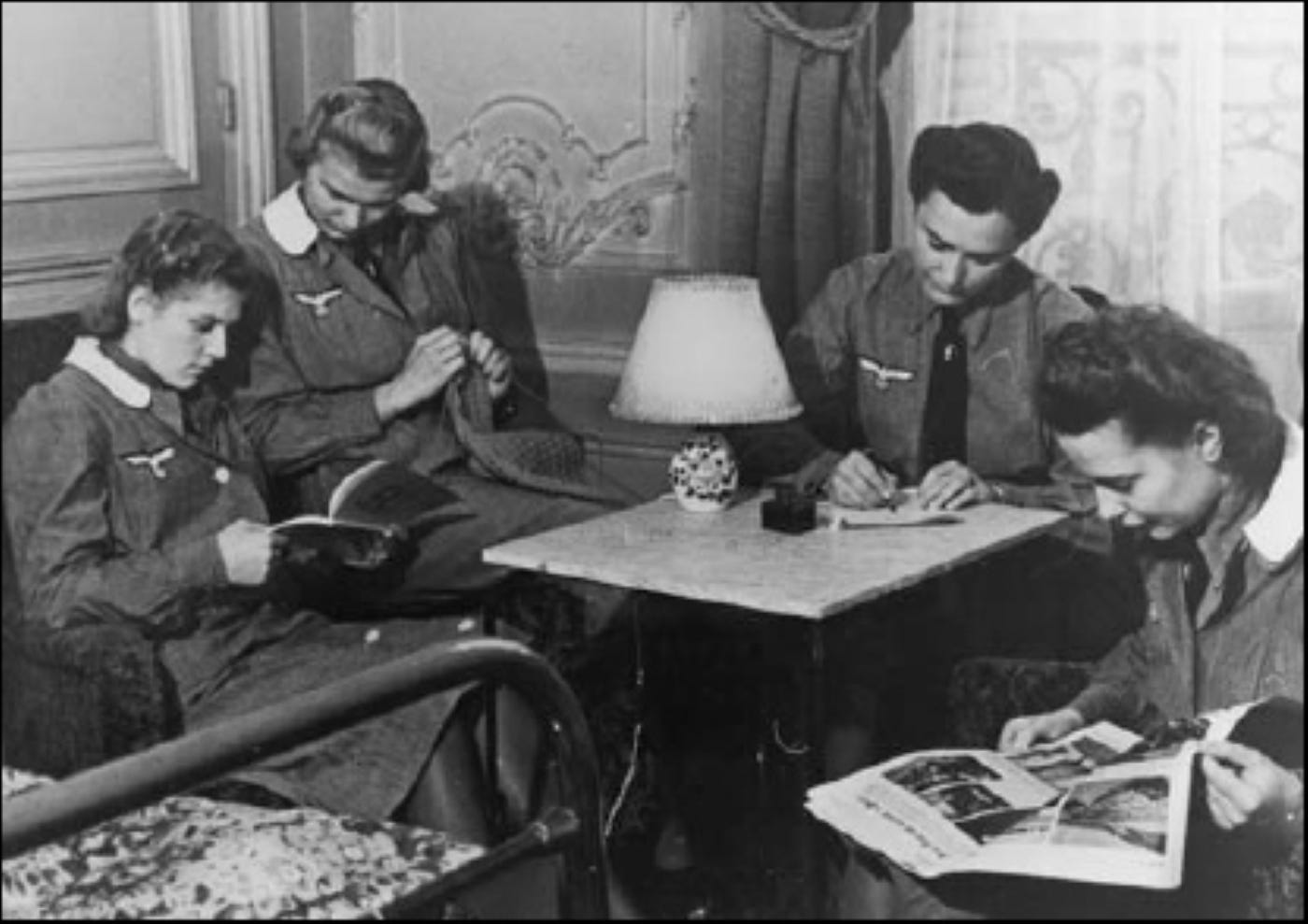
Orders have been issued prohibiting American troops from fraternizing with the enemy, including a prohibition against dating German women.
Troops have also been told to be on the alert for German saboteurs dressed in American uniforms.

US Navy vessels pounded Japanese positions in the Philippines again while American torpedo bombers have been active over Formosa and Okinawa.
[Not known to the paper’s readers, the amphibious assault on the Philippines, and General Douglas MacArthur’s return, will come tomorrow, October 20th, with the landing of four US Army divisions on Leyte.]
The US Marine commander who directed the invasion of Peleliu in September said that US troops found dead Japanese artillery observers there who had been tied to their positions with ropes.

Republican presidential nominee, New York Governor Thomas Dewey, blasted FDR’s handling of foreign affairs in a speech last night, claiming his blunders, through the pursuit of secret one-man diplomacy, threatened the attainment of a lasting world peace.
Dewey also said it may be necessary, after the war is over, to prohibit Germany from engaging in aviation industry and internationalize Germany’s industrial Ruhr Valley.
‘Never before were the results of a presidential campaign so vital to American women,’ Dewey said.

Two Republican governors campaigning for Dewey said the FDR administration was ‘an unholy alliance of New Dealers, Communists and big city bosses.’
And the Republican candidate for the Senate from New York said the election of Dewey and the entire Republicans ticket was necessary if America’s democratic way of life was to continue.

At a campaign stop in Oregon, Harry Truman, the Democratic Vice-Presidential nominee, reminded voters that ‘most of the Republicans in Congress had voted against every measure intended to prepare the nation for war.’

Meanwhile, FDR announced his intention to campaign throughout the boroughs of New York City on Saturday.
[He will do so for four hours in an open car in driving rain.]

Albert Einstein is among the members of a new group of college presidents, deans and professors backing FDR in the November presidential election.
The group said Roosevelt, rather than his electoral opponent Thomas Dewey, was more likely to promote international security, expand educational opportunity and provide federal aid for education.
Although Einstein and FDR would never meet, Einstein’s 1939 letter to FDR warning him that the Germans were building an atomic bomb is credited with helping to launch the American effort to do the same, called the Manhattan Project.

The vice president in charge of production at Warner Brothers movie studio said he expects no slow-down in the American movie business after the war provided film producers continue to put out high-quality offerings.
Among the best movies of the day:
“Laura,” starring Gene Tierney and Dana Andrews, with one of the best theme songs ever to come out of Hollywood.
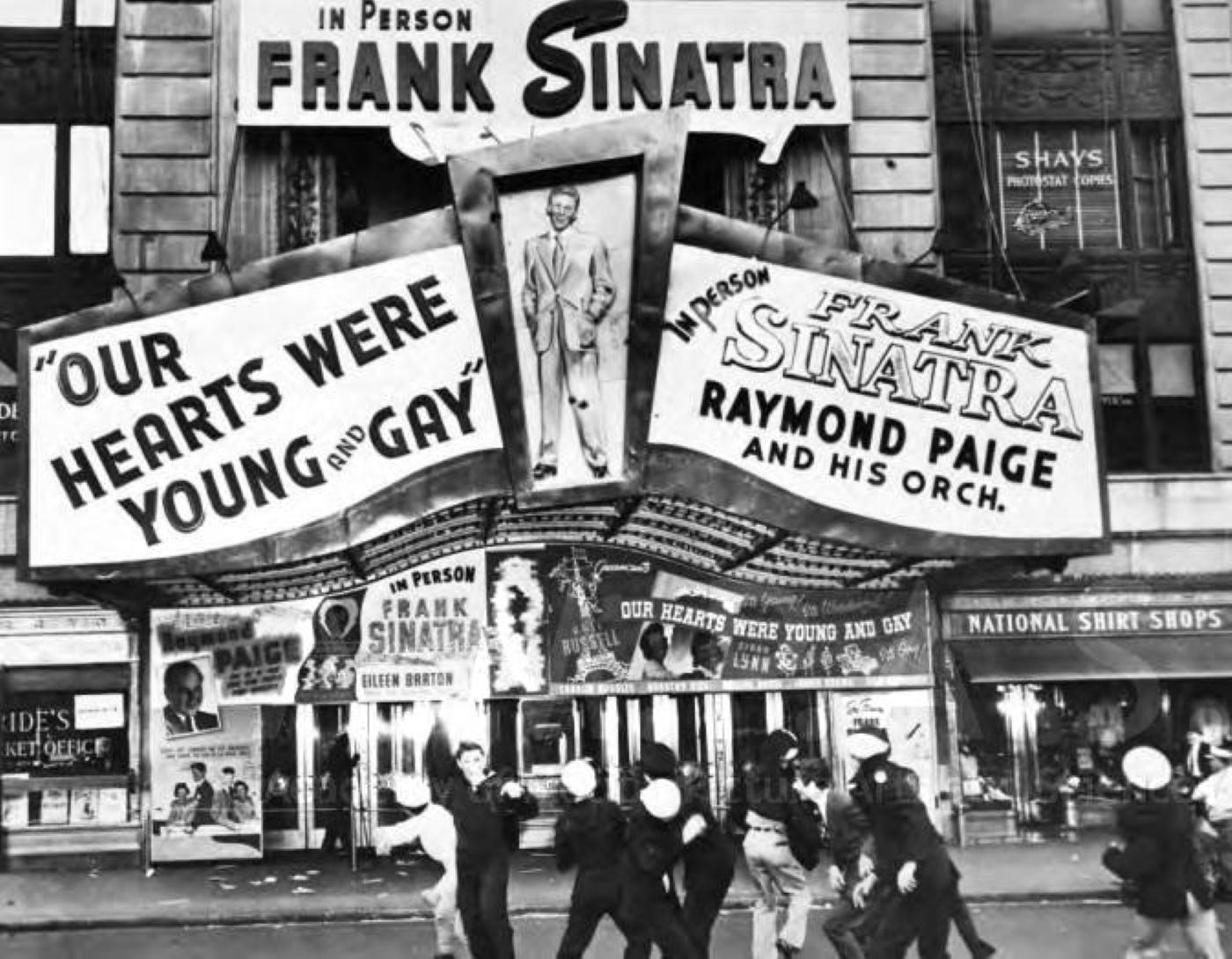
Also playing, the forgettable film, “Our Hearts Were Young and Gay,” a comedy about two young women bouncing through 1920s Europe.
Not great.
But the Paramount Theatre in Times Square showing the movie added a kicker: a live Frank Sinatra performance as the opening act.

Sinatra’s 1940s nickname: “The Voice.”
Oh, yes.
******************************
I’ll see you on Monday.
— Brenda
Banner image: an American soldier takes aim in Aachen, Germany, 1944.


